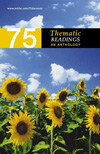
Judith Ortiz Cofer |  |
Judith Ortiz CoferJudith Ortiz Cofer, "Casa, A Partial Remembrance of a Puerto
Rican Childhood" Judith Ortiz Cofer (1952- ) was born in Hormigueros, Puerto Rico and
grew up in New Jersey. She earned a B.A. from Augusta College in 1974
and an M.A. from Florida Atlantic University in 1977. Cofer has taught
at many colleges and universities, including the University of Michigan
and the University of Georgia, where she's been since 1984. Cofer's a
novelist, essayist, and poet. Much of her work is autobiographical, and
her books include the novel The Line of the Sun (1989) and Woman
in Front of the Sun: On Becoming a Writer (2000). Cofer also frequently
contributes to such periodicals as The Missouri Review, Callaloo,
and Witness. Among other awards and honors, she's won the Pushcart
Prize for her nonfiction, and an O. Henry Award for her short story "Nada."
"Casa, A Partial Remembrance of a Puerto Rican Childhood" was
first published in the journal Prairie Schooner in 1990 and reprinted
in Silent Dancing: A Partial Remembrance of a Puerto Rican Childhood
(1991). | QUESTIONS FOR DISCUSSION | CONTENT - Describe Mamá's parlor.
- What are cuentos?
- How did the nuns at La Escuela San Jose encourage good posture among
their students?
- Name the word Mamá considered synonymous with decent.
- What two meanings does the author provide for the word macho?
- Describe the central thing that the girls drew from Mamá's
story about María.
- What contrasts does the author draw between her homeland, Puerto
Rico, and Los Nueva Yores?
STRATEGY AND STYLE - What do you make of the word partial in the title? How would
the meaning of the title change if the author omitted that word? What
might the author's usage here say about her relationship to her memoir?
- Discuss how this piece can be classified as a definition essay. Make
sure that you make clear the author's main definition and her types
of support.
- In paragraph six Cofer uses a simile to compare María to a
fairy tale character. What's the full comparison and what image does
it create? What does this say about some of the things the author learned
as a child?
- Cofer uses exaggeration at the end of paragraph eleven. Describe
her use of this literary device and its effect. How can you tie it into
the author's approach to learning as described in this essay?
| ENGAGING THE TEXT | - What are some of your best memories of childhood? Did any of them
come back to you while you were reading this? Did any parts of this
essay come back to you when you thought about your memoires?
- How much does your cultural background affect your self-identity?
Imagine switching cultural heritages. Which one did you pick? Why? What
about you would change? How can you link these ideas to your thoughts
about your reading?
| SUGGESTIONS FOR SUSTAINED WRITING | - Write an essay about the role men play in this piece. What men are
mentioned? Where are they and what are they doing? What effect does
this have on the women in the essay?
- Discuss "Casa" as ethnic literature. Using the reading
and your own experiences, write about how it positions its audience
in terms of inclusion and exclusion. Make sure to make your concept
of "audience" clear.
| FOR FURTHER RESEARCH | Do some research to find out more about the type of Puerto Rican stories
Mamá told. What other ones did you find? Can you put them into
categories? How did this research project enhance your understanding of
"Casa"? | WEB CONNECTION | Would you like to put Cofer's work into a broader cultural perspective?
The homepage of the site
HispanicOnline.com will give you numerous things to think about in this
regard. | LINKS | Biographical Want some more information about this author's life? Check out
her personal homepage
at the University of Georgia. You'll find a photo of her (and some flower
photos), as well as links to things like her vita and a bibliography.
Here is Cofer's biography
from the New York State Writers Institute. There are also pictures of
her and of some of her book covers. For a slightly different perspective, visit this page,
which features Cofer's life from the point of view of The Chelsea Forum,
her speaking agency. How is the information focused here?
Bibliographical Cofer discusses her writing, teaching, and her life in this interview
from the AWP Chronicle. "Don't Misread My Signals: I May Dress in Scarlet, But Don't
Mistake Me for a Hot Tamale" is the title of this essay
she wrote for Glamour magazine's "Hers" column in 1992. Ready to read some more of this author's work? Click here
for some excerpts from her book Woman in Front of the Sun: On Becoming
a Writer.
Cultural Cofer is of Puerto Rican descent. Interested in the history of
Puerto Rican migration to the mainland? This page
gives a brief history of the subject, plus related links and a bibliography. Here is a book
review of Cofer's Silent Dancing: A Partial Remembrance of a
Puerto Rican Childhood. After reading the review, would you be interested
in reading the book? Why or why not? Did you know that this author also writes for children? Here is
some information
about a book of children's poetry to which she contributed.
|
|
|
|